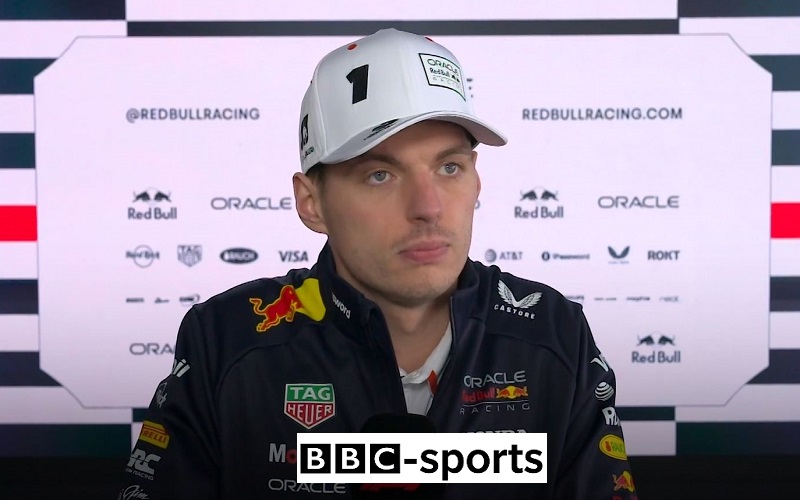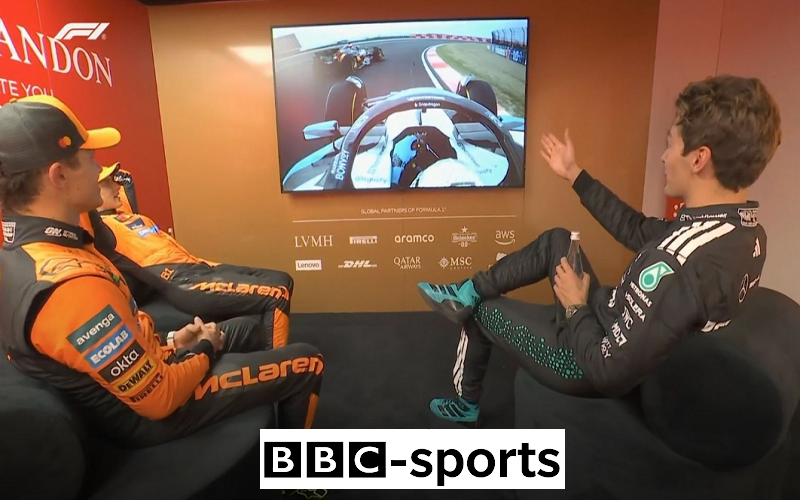Max Verstappen, a prominent figure in Formula 1 and one of Red Bull’s key drivers, has recently voiced his concerns about the driver swap between Liam Lawson and Yuki Tsunoda during the Japanese Grand Prix. Verstappen’s views come as a significant commentary on the strategic decisions made by Red Bull Racing, shedding light on the team’s internal dynamics.
The Context Behind the Driver Swap
The Japanese GP marked a pivotal moment for Red Bull Racing as they decided to make a temporary swap in their lineup. Liam Lawson, a promising young driver, replaced Yuki Tsunoda during this race. Tsunoda, a Japanese F1 driver, had been a consistent part of the AlphaTauri team, which is an affiliate of Red Bull Racing. The decision to swap drivers has sparked a debate within the racing community, and Verstappen’s reaction has become a major talking point.
Verstappen’s Discontent with the Swap
Verstappen, known for his direct and candid opinions, expressed dissatisfaction with the decision to swap Lawson and Tsunoda. He emphasized that such changes could have implications on the team’s performance and strategy, especially at a critical moment in the season. Verstappen’s concerns highlight the complexity and sensitivity of driver selection in Formula 1, where consistency and team cohesion are key.
Key Concerns Raised by Verstappen:
- Team Stability: Verstappen stressed that driver stability within the team is crucial for building momentum and achieving long-term success.
- Race Strategy Impact: He pointed out that frequent changes in the driver lineup could affect the race strategies and preparation for each Grand Prix.
- Driver Development: Verstappen also voiced concerns about how these swaps impact the development of younger drivers, like Lawson, who need consistency to refine their skills.
The Role of Red Bull Racing in Driver Decisions
Red Bull Racing has always been at the forefront of nurturing young talent, and the decision to give Lawson an opportunity to drive for AlphaTauri reflects the team’s focus on long-term development. However, the swift nature of the swap has raised questions about the consistency of driver development programs within the Red Bull family. Verstappen’s dissatisfaction also brings into focus the pressure faced by drivers in such high-stakes environments.
How Max Verstappen’s Opinion Affects Team Dynamics
Verstappen, as the team’s star driver and two-time World Champion, holds significant influence within Red Bull Racing. His perspective on the driver swap not only sheds light on the internal workings of the team but also sends a message to the management regarding how decisions made at the top level affect the performance of the entire team.
While Verstappen’s success has brought immense glory to Red Bull, his comments underscore the fact that maintaining harmony within the team and ensuring that each driver is given a fair chance to prove themselves is essential for the long-term health of the team.
The Impact on the Japanese GP
The Japanese GP, held at Suzuka Circuit, is a crucial race in the Formula 1 calendar, known for its challenging turns and high-speed straights. For Verstappen, who had already secured the 2023 World Championship, this race provided a platform to showcase his dominance once again. However, the strategic decision surrounding Tsunoda and Lawson diverted attention from the main competition, with fans and commentators debating the effects of the driver swap.
Key Stats from the Japanese GP:
| Driver | Final Position | Laps Led | Fastest Lap Time |
|---|---|---|---|
| Max Verstappen | 1st | 51 | 1:31.231 |
| Liam Lawson | 10th | 0 | 1:33.055 |
| Yuki Tsunoda | Retired | 0 | N/A |
What Does This Mean for the Future of Red Bull Racing?
With Verstappen’s discontentment, Red Bull Racing might face increasing scrutiny over its decisions regarding driver swaps. Going into future seasons, the focus will likely be on maintaining a stable driver lineup that can contribute to the team’s ongoing success. The question remains: Will Red Bull continue to prioritize young drivers like Lawson, or will they focus more on stability and consistency in the lead-up to key races?
Conclusion
Max Verstappen’s opinions on the driver swap involving Liam Lawson and Yuki Tsunoda during the Japanese GP reflect the complexities of Formula 1 management. His concerns about team cohesion, race strategy, and driver development are important considerations for Red Bull Racing as they look to build on their successes. As the season progresses, these internal discussions will undoubtedly shape the team’s approach to driver management, and Verstappen’s voice will remain a pivotal part of the conversation.



